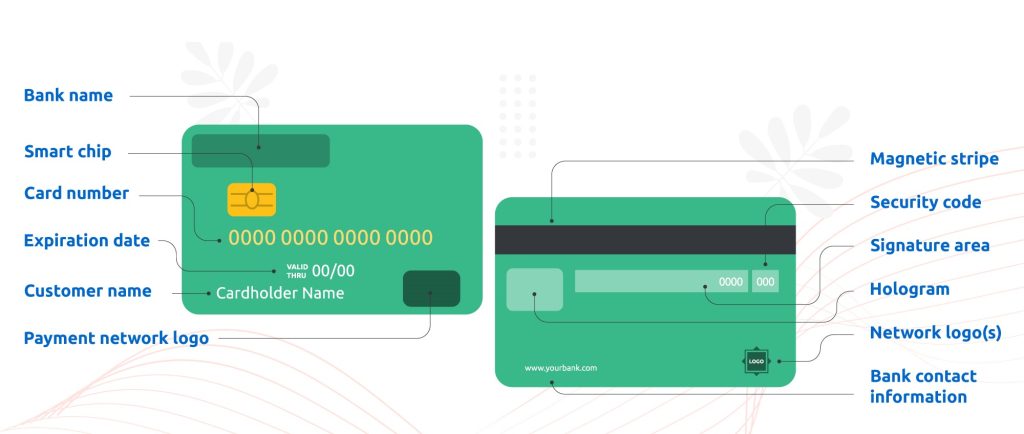Whenever we talk about digital payments, debit cards always pop-up. A debit card is the most popular type of plastic money which almost all of the bank accountholders use frequently to make payments online and at merchant stores.
Let’s know about debit card meaning, best debit cards in India and features of debit card, etc. in this post.
What is a Debit Card?
A debit card is a payment card which when used online or at a brick & mortar store pays money directly from the linked bank account. It is the most basic form of plastic money and helps customers do away with carrying cash.
Debit card is also known as a check card or bank card.
Top Debit Cards Providers in India
The following are the most used debit cards by the customers in India:

Best Debit Cards in India, 2023
Check the following debit cards with their salient features that make them one of the best debit cards in India:
| Debit Card | Daily ATM Withdrawal Limit | Daily Shopping Limit | Salient Features |
| SBI Platinum International Debit Card | Up to Rs 1 lakhs | Up to Rs 2 lakhs | 2 reward points for every Rs 200 spent Auto-enabled online payments |
| HDFC Easy Shop Platinum Debit Card | Up to Rs 2 lakhs | Up to Rs 5 lakhs | 1 cashback point for every Rs 200 spent Up to 5 free ATM transactions Insurance cover |
| ICICI Coral Paywave Debit Card | Up to Rs 1 lakhs | Up to Rs 5 lakhs | 2 reward points on every Rs 200 spent Airport lounge access on min. spend of Rs 3,000 |
| HDFC Millennia Debit Card | Rs 50,000 | Rs 3.5 lakhs | 2.5% cashback on online spends5% cashback on PayZapp & SmartBuy 4 domestic airport lounge access Accidental insurance cover up to Rs 10 lakhs |
| Kotak PayShopMore Debit Card | Up to Rs 40,000 | Up to Rs 2 lakhs | Up to Rs 5 lakhs of Personal accident cover |
Where/How can I use a Debit Card?
You can use a debit card in the following ways:
- To buy goods and services at stores
- For online shopping at e-commerce websites
- To make bill payments like mobile recharge and electricity bill etc.
- To make credit card payments
- To make loan EMI payments
- To withdraw cash from ATMs
- To activate netbanking services
Components of a Debit Card
A debit card is a rectangular plastic card which carries certain details about the cardholder. These are called as the components of debit card, viz.:

At the Front
- Bank Name
- Electronic Chip
- Cardholder’s Name
- Card Number (can be at the front or at the back)
- Validity/Expiration Date
- Payment Network Logo (VISA, MasterCard, etc.)
At the Back
- Magnetic Strip
- Hologram
- Space for Card Holder’s Signature
- CVV (Card Verification Value)
- Payment Network Logo
- Bank Information
- Type: International or Domestic
Difference between Debit Card and Credit Card
While debit cards and credits both are forms of digital payment cards, there are some distinct features that differentiate the two cards. Look at the table below to know what is the difference between debit card and credit card:
| Particulars/Card | Debit Card | Credit Card |
| Functionality | Amount deducted directly from bank account | Amount paid but not deducted from the bank account; loan amount is created |
| Payment Due Date | No payment due date as amount is paid immediately | Needs to be usually paid by the cardholder within 30 days from the date of swiping the card |
| Interest | No interest charged | Interest is charged if payment is not made within due date |
| Fees | Little fee (usually within Rs 300 in most banks) | Most banks charge high fee starting from Rs 500 |
| Debt cycle | No debt accumulation | Unthoughtful spending may result in heavy debts |
| Credit Score Impact | No effect on credit score | Builds credit history and has direct impact on cardholder’s credit score |
Debit Card EMI
You can convert your debit card purchases easily into EMIs or Equated Monthly Installments thus paving an economic solution to suit your monthly budget.
Suppose you want to buy a mobile phone worth Rs 50,000 but do not want to make a lumpsum payment. In such a case, you can opt to convert the payment value in EMIs or 3/6/9/12/18 months.
The amount of Rs 50,000 won’t be blocked in your account but every month, a set amount will be automatically paid to the merchant from your linked bank account.
Types of Debit Cards
There are majorly 4 types of debit cards available in India, viz.:
- VISA Debit Card – Classic, Gold, Platinum, Signature & Infinite
- MasterCard Debit Card – Standard, Platinum & World
- RuPay Debit Card – Classic, Platinum & Select
- Contactless Debit Card
What is CVV in Debit Card?
CVV Full Form: Card Verification Value
CVV is a 3-digit number which is printed at the back of every debit card. This is the verification code which has to be entered every time you make an online debit card payment.
When paying at a physical store, when you swipe/tap your debit card at the POS machine, it reads your card’s CVV automatically. But in online payments, you need to enter this manually.
Without CVV, debit card payments cannot be made. You must never share your CVV with anyone, not even your bank representative.
Debit Card: Important Terms
There are a few more terms that must be clear in your mind when applying for debit card from any bank, viz.:
- Minimum Average Balance or MAB: MAB stands for Monthly Average Balance, which is the average balance that needs to be maintained in the linked savings or current account for the card to remain active. The MAB requirement can vary based on the type of account and card.
- Daily withdrawal limit: This is the maximum amount of cash that can be withdrawn from an ATM using the card in a single day. The limit can vary based on the type of card and the bank’s policies.
- Online purchase limit: This is the maximum amount that can be spent on online purchases using the card in a single transaction or day. The limit can vary based on the type of card and the bank’s policies.
- Insurance Cover: Some of the debit cards offer insurance cover, which can provide financial protection against certain events, such as accidental death or disability. The type and amount of insurance cover can vary depending on the card.
Debit Card: FAQs
A debit card is a plastic payment card which can be used online as well as at physical stores, along with at ATMs.
Yes. All debit cards come with this facility to withdraw cash at ATM.
No. Interest is not charged for using debit cards. You are simply paying via debit card instead of cash.
Yes. There are different charges like debit card issuance charge, annual maintenance charge and replacement charge. However, some card like SBI Global debit card do not have any issuance charge.
While credit card works by giving loan with a 30-days repayment period, debit cards deduct payment amount directly from the cardholder’s bank account. Also, credit cards charge interest while there is no interest payment for using debit cards.
You need to load a certain amount in a prepaid card and then use it till that limit only. A debit card is linked to your bank account and its limit is equal to your bank account balance.




